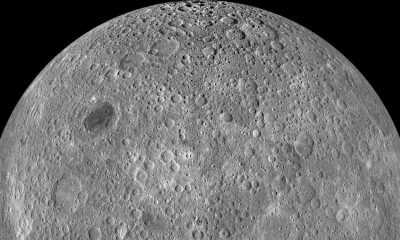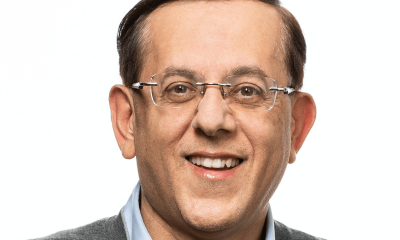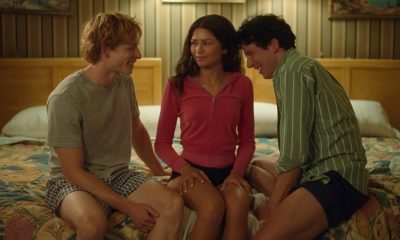Entertainment
‘Flipside’ review: Judd Apatow, Starlee Kine, and David Milch talk art and failure

For film festival veterans, there are several red flags in the plot description for Flipside.
First off, it’s a documentary in which its director turns the camera on himself, a move that can lead to a rivetingly vulnerable exploration of self, but which more often results in ruthlessly self-indulgent navel-gazing. Second, documentarian Christopher Wilcha is looking back at his past from the precipice of a mid-life crisis, a starting point ripe for wallowing. Third, his pal and collaborator in this effort is Judd Apatow, a contemporary comedy titan who is also known for beleaguering runtimes and sentimental excesses. And yet, for all the potential pitfalls that could pitch this picture into an abyss of groaning solipsism, Flipside deftly leaps over each one, landing on something funny, thought-provoking, and sublime.
Remarkably, Wilcha begins with a tone that might set more jaded viewers on edge, a real risk considering his key demographic will likely be fellow angst-ridden Gen X-ers. But he thoughtfully broadens focus, connecting his story of artistic ambition, capitalist compromise, and fear of mortality to other artists and creatives — including an eccentric TV personality and the TV legend David Milch (Deadwood, NYPD Blue). Together, they form a patchwork that invites the audience to reflect on their own lives, as well as the comfort that we’re not alone.
Watch out, though. If you’re not second-guessing your choices already, you might be once Flipside is through with you.
What’s Flipside about?
Named for the New Jersey record store that Wilcha worked at as a teen, Flipside is several stories all at once. The first is about Wilcha, who was a filmmaker on the rise 20 years ago, thanks to his challenging documentary The Target Shoots First. There, he’d made a mockery of his survival job at Columbia House to criticize the stodgy capitalism of his parents’ generation. This was a time when being a “sellout” was a cultural crime, though rent comes dues whatever your principles.
Over the years, Wilcha made more documentaries, teaming with Ira Glass for This American Life‘s TV show (which won him a Primetime Emmy in 2008) and shooting a behind-the-scenes special for Apatow’s flop Funny People. However, his side hustle had began to pay off, pushing off his passion projects to be forgotten on a shelf of dust-covered hard drives. And before he knew it, he was no longer the “damn the man” documentarian, he was a commercial director who feared he’d become what he once most loathed — reality bites, indeed.
Within Flipside, Wilcha confronts his failures in not finishing these films by bringing their footage into this one. At first, their inclusion seems almost masochistic, as he reveals lovely interviews and patient, evocative footage, all of it urging us to imagine what might have been. Then, it seems these forgotten projects will be the fuel to finish the one about the titular record store, its owner an aging connoisseur whose hoarder aesthetic and jerky-smelling shop doesn’t connect to the modern vinyl collector. But as Wilcha weaves from one story to another, mirroring his previous project-hopping, he ties seemingly disparate stories together into a common cause
Flipside is a story of failure and forgiveness.
One such project was a documentary about a storied jazz photographer. Another intended to follow radio producer/podcast luminary Starlee Kine as she confronted writer’s block while drafting a book. Shot over decades, these untold hours of footage have fresh meaning, even if the photog has passed and Kine’s book was never published. They all speak to the challenges of an artistic vocation. What drives you? What scares you? What stops you from pursuing the dream project you so badly had wanted?
While this might sound like an topic rich in self-loathing, Wilcha is romantic in his regard for every element of the messiness that is creation. He connects to these artists’ struggles; using close-up shots as his interviewees spill their secrets reflect how close he got to them and how close he still feels to them. We’re invited in to metaphorically share the same air, fraught with panic and possibility. Like his subjects, his plotting zigs back and forth, reflecting on a past now nostalgic and sweet, musing on a present that feels impossible to hang onto, and fretting over a future we cannot truly predict. And within all this, Wilcha finds humor and humanity — which might be no surprise to fans of This American Life.
Perhaps the funniest moment is when Judd Apatow takes a FaceTime call from Wilcha’s mother, who unleashes on him for being the reason her son moved her grandchildren across the country to Los Angeles. It’s an alarmingly intimate moment, and Mrs. Wilcha doesn’t hold back, not for the sake of civility or her son’s camera. Apatow takes the blows like a prize fighter, but there’s a genuine sadness from each as they realize what powerful consequences can come from deceptively simple decisions.
Here is the heart of Flipside. Wilcha examines not only his own life and foibles but also those who’ve entrusted him with their stories. In these tapes, he has found moments of loss, grace, bitterness, and tenderness. He doesn’t center the story on himself, but he does expose his own subjectivity. Interviews are not shot in stark rooms with staunch wide shots. These people curl up on their couches, crash onto battered office chairs, or lean on a box of raggedy record sleeves. There’s no feigned distance between him and his subjects, because they are connected. And through Wilcha’s gently persistent narration, we are guided through every interaction. His tone is more familiar than that of a tour guide, though, and we’re not just the audience but also fellow passengers on this voyage.
Flipside is about more than one person or one record shop. It’s about the quest to find purpose in art and vocation. But more than that, this finished film is about forgiving yourself for things not working out as you planned and making peace with the present by creating something new with the pieces of past failings. It’s beautiful and inspiring, and it might just spur you into some mind-fucking self-reflection. Good luck.
Flipside was reviewed out of its World Premiere at the 2023 Toronto International Film Festival.
-

 Entertainment7 days ago
Entertainment7 days agoSummer Movie Preview: From ‘Alien’ and ‘Furiosa’ to ‘Deadpool and Wolverine’
-

 Entertainment6 days ago
Entertainment6 days agoWhat’s on the far side of the moon? Not darkness.
-

 Business7 days ago
Business7 days agoThoma Bravo to take UK cybersecurity company Darktrace private in $5B deal
-

 Business6 days ago
Business6 days agoHow Rubrik’s IPO paid off big for Greylock VC Asheem Chandna
-

 Business5 days ago
Business5 days agoTikTok faces a ban in the US, Tesla profits drop and healthcare data leaks
-

 Business5 days ago
Business5 days agoLondon’s first defense tech hackathon brings Ukraine war closer to the city’s startups
-

 Business6 days ago
Business6 days agoPhoto-sharing community EyeEm will license users’ photos to train AI if they don’t delete them
-

 Entertainment7 days ago
Entertainment7 days ago‘Challengers’ review: You’re not ready for Zendaya’s horny love-triangle drama




























